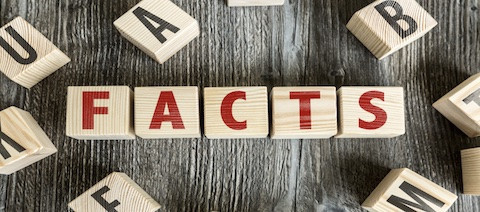
GCED Basic Search Form
Quick Search
أنت هنا
الأخبار

"Social media increasingly rely on independent fact-checkers to help them free their platforms of disinformation. But, while fact-checkers seek to help users trust quality information, their relationship with traditional media becomes strained when fact-checkers question the work done by journalists. Strengthening the relationship between independent fact-checkers and traditional media has therefore become a new focus of our work in a project to build trust in media," said Adeline Hulin, Project Officer at UNESCO EU Liaison Office in Brussels.
Fact-checking was traditionally viewed as a part of journalistic pursuit performed within newsrooms as quality control to verify content produced by journalists. Following the advent of social media and migration of public debates to online space, fact-checking also became the focus of independent organisations aiming to improve accountability related to claims on the veracity of information published on social media. accountable for their claims. However, as the number of independent fact-checkers grew internationally, their relationship with media outlets has been on the wane. This is the case in South East Europe, where media have occasionally objected to how the fact-checking process is undertaken and how their reporting is removed from social media following the flagging by some fact-checkers.
We have received a large number of complaints and objections from the media regarding fact-checking platforms in BiH. In their complaints, media object to the methodology and selective approach of fact-checkers and ask us to protect them as they claim that this approach introduces censorship, but also self-censorship of journalists and editors out of fear of penalties in the form of reduced reach on Facebook and, consequently, decreased earnings and news visibility.
-- Dženana Burek, Executive Director of the Press Council in Sarajevo
With this in mind, the UNESCO EU-funded project "Building Trust in Media in South East Europe and Turkey - Phase 2" dedicates a part of its activities to establishing innovative solutions to install a dialogue and cooperation between media and fact-checkers.
Firstly, the project is working with partners to pilot a mediation system between fact-checkers and media outlets to encourage cooperation between the two. In Turkey, for instance, UNESCO’s media NGO partner P24 recommends establishing a system of contact between media outlets and fact-checkers to enable fact-checkers that identify problematic content in journalistic articles first to communicate this to the media outlet. “With such mechanism, fact-checkers could ask media to correct those claims it put forward and the media would be able to contact fact-checkers ahead of the publication of news,” said Özgun Özçer, Project Coordinator of P24. “The system will consist of establishing a contact fact-checker for each newsroom and vice-versa,” he explained.
Secondly, UNESCO is supporting in South East Europe the development of fact-checking units within newsrooms. In Serbia and Montenegro, UNESCO is partnering with a media outlet that does fact-checking and a member of the International Fact-Checking Network, to support fact-checking skills and units in newsrooms working closely with media outlets. The aim is to provide in-depth training on fact-checking, as well as mentoring, to 2 media outlets in Serbia and 2 in Montenegro with the objective of supporting the development of new fact-checking units.
Finally, the UNESCO project is supporting press and media councils in the region to encourage fact-checkers to adhere to media self-regulation and to journalistic and professional standards. Many fact-checkers have their code of ethics and practices, such as the ones of the International Fact-checking Network, but the adherence of fact-checkers to existing media self-regulation mechanisms at national level is an additional way to reinforce cooperation between media and fact-checkers and enable resolution of disputes. In some countries press councils are now welcoming fact-checkers as members. This puts fact-checkers under the same ethical standards as media, ensuring that in potential disputes the press council would be able to handle the complaints.
UNESCO and the European Union, DG Near, launched the second phase of the project Building Trust in Media in South East Europe and Turkey in November 2019. In addition to enhancing fact-checking in media outlets, the project, among others, works with youth through SEE Youth Newsroom and supports the piloting of ethical audits within media to combat online disinformation.
- Building Trust in Media in South East Europe and Turkey – Phase 2
- UNESCO supports fact-checking workshops for journalists and representatives of civil society in Turkey
- UNESCO launches a Youth Newsroom for South East Europe and Turkey
- Ethical audits: a powerful tool for enhanced transparency and good governance
URL:
